Israel Signs Second Disengagement Agreement with Egypt
In Geneva, Switzerland, Israel and Egypt sign their Second Disengagement Agreement (Sinai II) following the October 1973 War.
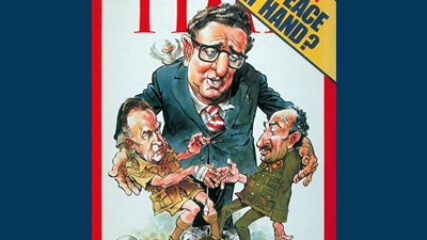
In Geneva, Switzerland, Israel and Egypt sign their Second Disengagement Agreement (Sinai II) following the October 1973 War.
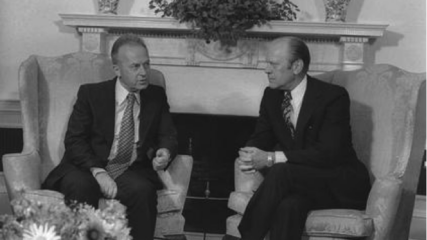
After a breakdown in diplomatic talks between Gerald Ford and PM Yitzhak Rabin, seventy-six Senators sign a letter to the President stressing the importance of both military and economic assistance to Israel.
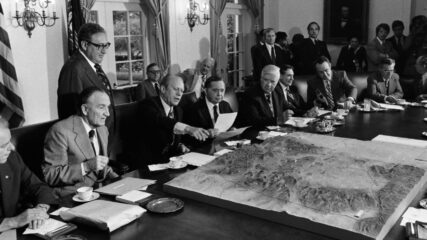
The US undertakes a “reassessment” of the Washington-Israel relationship, creating enormous tension between the US executive branch and the Israeli government.
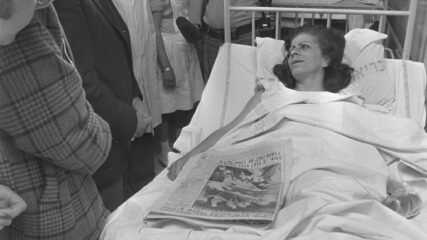
March 6, 1975 An eight-man Palestine Liberation Organization raid planned by Abu Nidal hits the beach in Tel Aviv around 11 p.m. and, after being spotted by police, attacks the Savoy Hotel. The terrorists kill…

June 3, 1974 Having defeated Shimon Peres in an election for Labor Party leader, Yitzhak Rabin formally succeeds Golda Meir as prime minister when he presents his coalition government to the Knesset for approval. He…
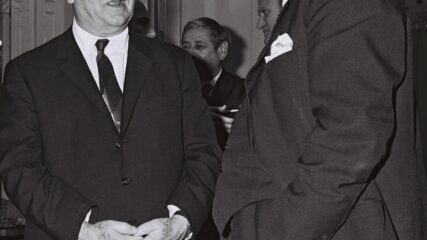
Richard Crossman, who supported Zionist efforts while serving on the Anglo-American Commission of Inquiry, passes away at his home in England from liver cancer.
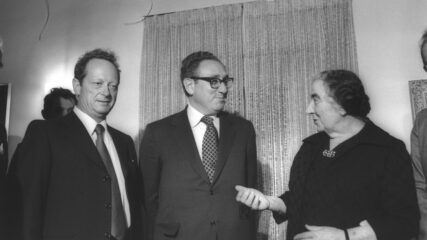
February 27, 1974 U.S. Secretary of State Henry Kissinger arrives in Tel Aviv from Damascus with a list of 65 Israeli prisoners held by Syria since the Yom Kippur War in October 1973, along with…
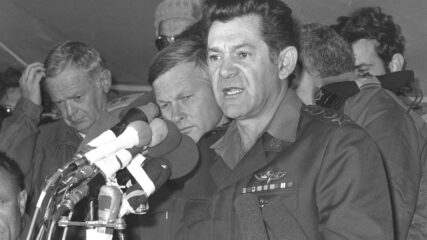
With U.S. assurances, Israel and Egypt agree to a buffer zone between their forces in the Sinai, moving toward what both sides wanted: the return of the peninsula for Egypt, peaceful relations for Israel.
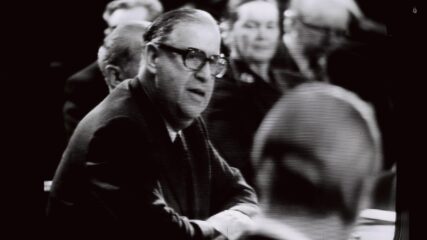
Convened under the co-chairmanship of the United States and Soviet Union, the Geneva Middle East Conference is “aimed at establishing a just and durable peace in the Middle East.”
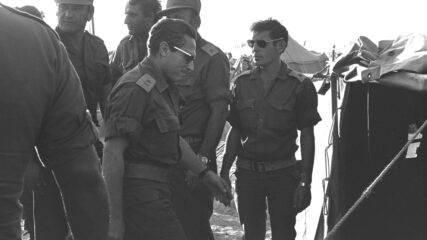
The Kilometer 101 Six-Point Agreement focuses on the maintenance of a cease-fire between Israeli and Egyptian forces, the movement of non-military supplies, the use of U.N. supervision, and exchange plans for prisoners of war.
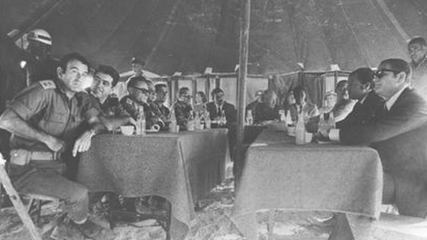
At the end of the October 1973 War, after several miscommunications, the first Egyptian-Israeli Military Talks between Generals commenced. These talks take place at 1am in Israeli-controlled territory, 101 kilometers from Cairo.
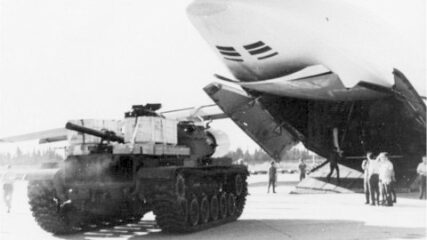
Oil ministers from Arab states cut exports by 5% and recommend an embargo of Israel’s allies in response to the U.S. airlift of military supplies to Israel during the Yom Kippur War.

Hafez Ismail and Henry Kissinger conduct secret meetings. Egyptian President Sadat had decided to appoint veteran diplomat Ismail to a newly created position, Egyptian National Security Adviser, in 1972.
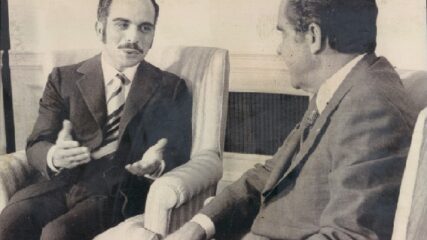
In a radio address delivered to the Jordanian people on Amman Radio, Jordan’s King Hussein proposes a federal solution to the Arab-Israeli conflict.
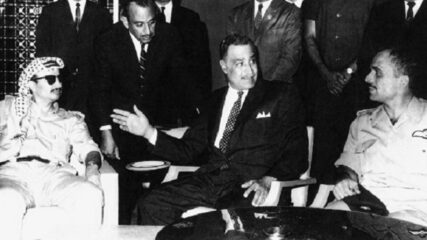
September 28, 1970 Egyptian President Gamal Abdel Nasser dies of a heart attack at age 52 after experiencing symptoms while returning from ceremonies marking the end of an Arab summit, in which he brokered a…
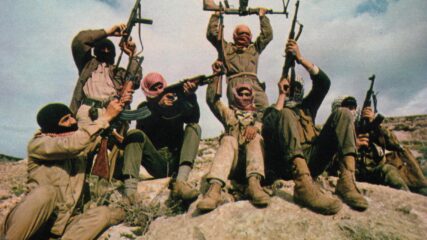
September 17, 1970 King Hussein sends the Jordanian army to attack the headquarters of Palestinian militant groups in and around the capital, Amman, and the city of Irbid, where the militants, known as fedayeen, had…
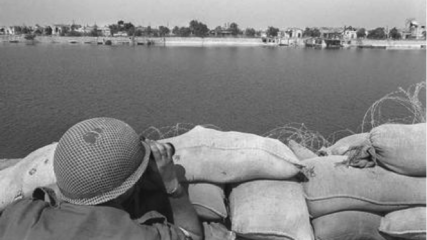
Israel, Jordan and Egypt finally signed a ceasefire, ending the 1967-1970 War of Attrition.
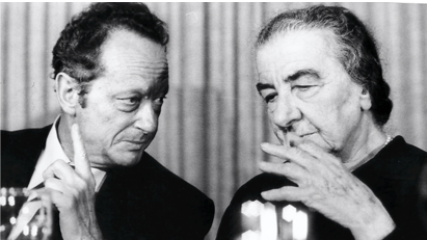
Deputy Prime Minister Yigal Allon, a former IDF general, reveals in remarks to the Foreign Press Association of Israel his plan for “home rule” for Arabs living in the West Bank.

August 21, 1969 A new immigrant to Israel, Denis Michael Rohan, sets fire to Al-Aqsa mosque in Jerusalem. Born and raised in Australia, Rohan moved to Israel only a few months before the attack. He…

April 4, 1968 Moshe Levinger and several other Israeli Jews pretending to be Swiss tourists check into a Hebron hotel to establish the first permanent Jewish presence in the city in almost 40 years, taking…
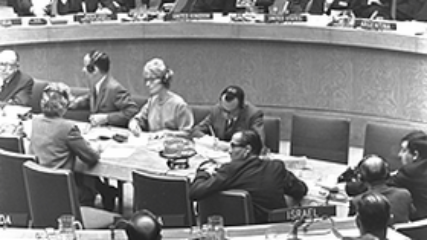
In the wake of the June 1967 Six Day War, the United Nations Security Council adopts Resolution 242, a document which has served as a framework for all major Arab/Israel negotiations since.
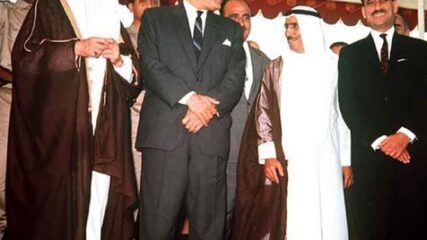
September 1, 1967 The Arab League summit in Khartoum, Sudan, ends with the signing of the Khartoum Resolutions, best known for the conclusions that become known as the “Three Nos”: no recognition of Israel, no…
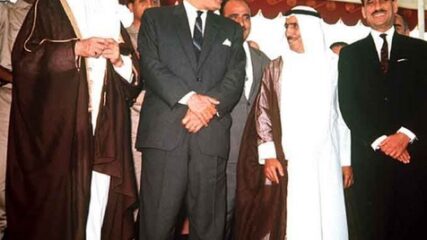
The Fourth Arab League Summit convenes in Khartoum, Sudan. Participants agree that all measures should be taken to regain lands controlled by Israel after the War, and that the oil-rich countries would finance an increased Arab military presence in the region.
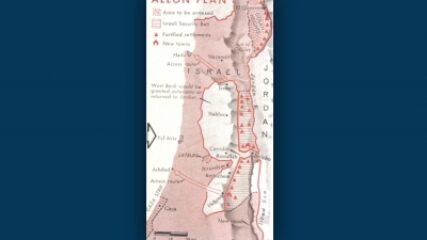
Penned by Yigal Allon, the Plan is a strategic proposal for Israel’s retention of the Jordan Valley in the West Bank. It includes a series of Jewish settlements and military installations to act as buffers against potential Arab attacks from the east.